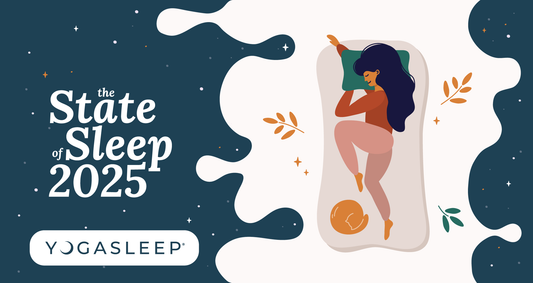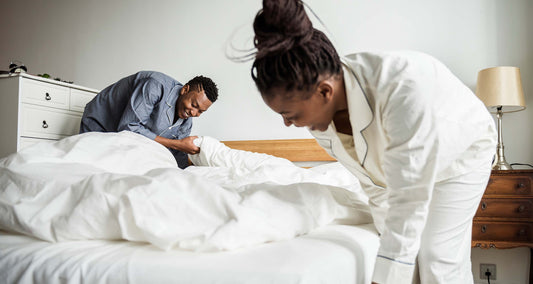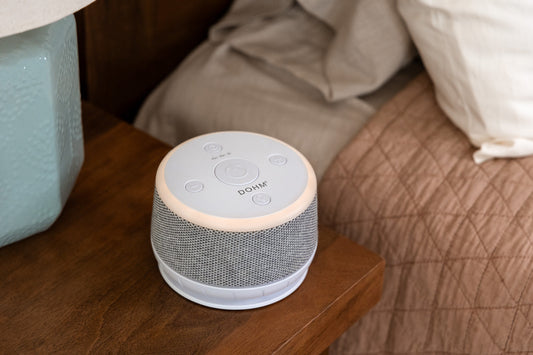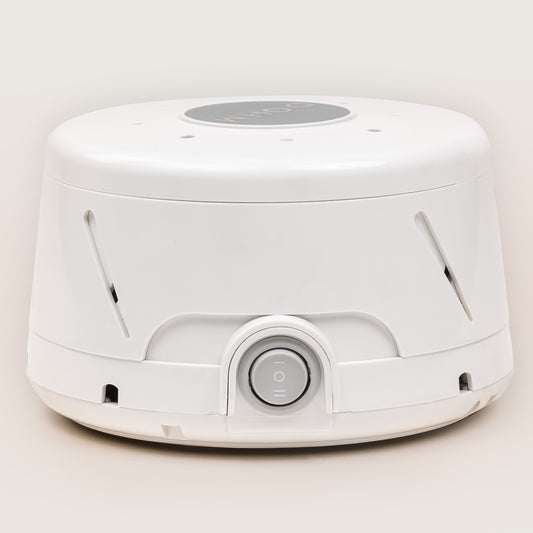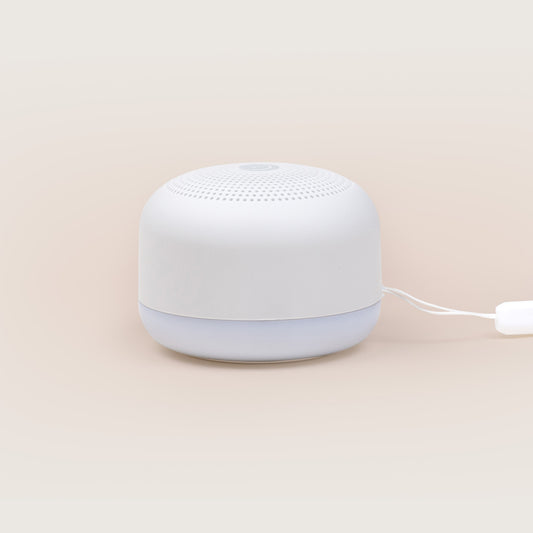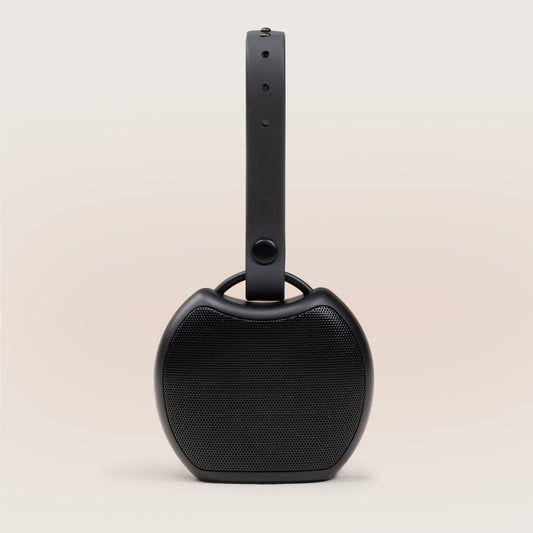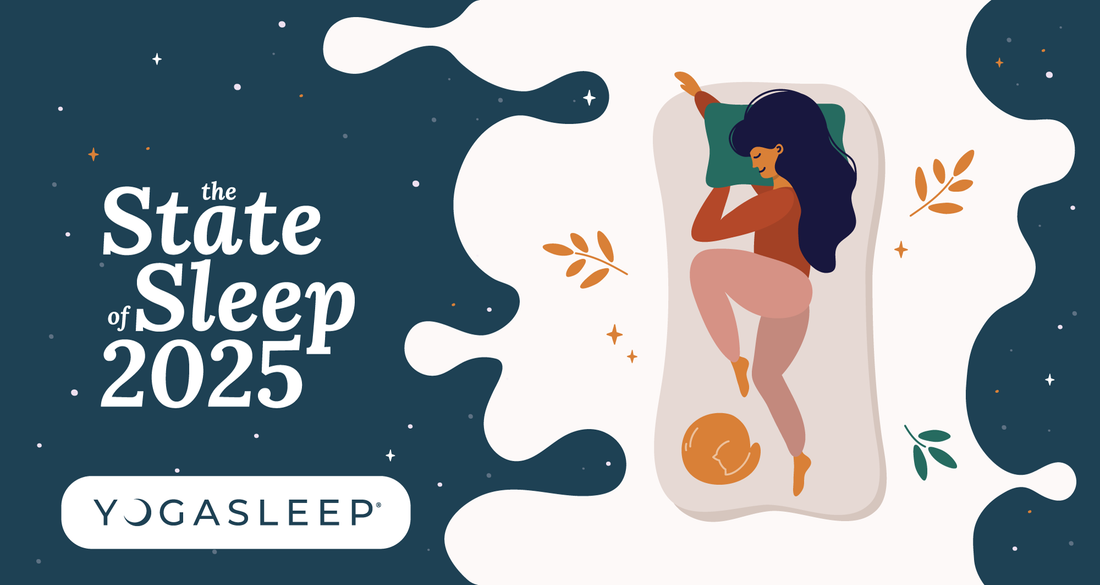
The State of Sleep in 2025
As we enter a new year, it’s essential to look closer at our sleep habits and their profound impact on our overall health and well-being. In today’s fast-moving world, it’s unsurprising that many people struggle to get the recommended amount of sleep each night. In fact, according to recent statistics, the average person gets less than 7 hours of sleep per night. This lack of sleep can have a profound impact on our mental and physical health, leading to a range of issues, from decreased productivity and increased stress to more serious problems like depression and heart disease. Let’s dive into the latest trends in sleep, including new technologies and treatments, and offer tips and advice on improving your sleep in 2025.
Sleep Patterns
The long-term effects of the COVID-19 pandemic continue to shape sleep habits in 2025. For some, remote work has enabled people to adjust their sleep schedules to better fit their needs, but stress, anxiety, and an always-connected culture still contribute to sleep disturbances. An increased push in some industries for a “return to office” may also be causing disruptions for others, leading to changes in routines, such as earlier mornings, and potentially more stress. The increased awareness of sleep-tracking technology has helped individuals gain insight into sleep quality and quantity, leading to a greater focus on optimizing rest through personalized interventions.
As we move further into the 21st century, we can expect continued advancements in sleep science and technology, with a greater emphasis on individualized approaches to sleep management. The integration of artificial intelligence (AI) in sleep coaching apps and smart home sleep environments has the potential to help users fine-tune their sleep conditions in unprecedented ways.
Sleep as a Practice
More than ever, experts advocate for "sleep as a practice"—a mindful, evolving process rather than a fixed achievement. Just like exercise or diet, sleep requires ongoing attention, self-assessment, and adjustments to fit one’s changing lifestyle, stress levels, and overall health. Instead of seeking a one-size-fits-all approach to perfect sleep, people are learning to adapt their routines based on their needs at different life stages. This shift in mindset fosters a more sustainable and forgiving attitude toward sleep, helping individuals make gradual improvements rather than striving for unrealistic perfection.
Sleep Disorders

Sleep disorders are a common issue affecting a significant portion of the population. According to the Sleep Foundation, around 50-70 million adults in the United States alone suffer from a sleep disorder. Insomnia, sleep apnea, and restless leg syndrome are some of the most common sleep disorders, with insomnia affecting around 30% of adults. These sleep disorders can have a serious impact on both mental and physical health, leading to issues like increased stress, decreased productivity, and even cardiovascular disease. Fortunately, advancements in the treatment of sleep disorders have made it easier for people to manage their symptoms.
Treatments like cognitive behavioral therapy for insomnia (CBT-I) and continuous positive airway pressure (CPAP) machines for sleep apnea have proven to be effective in managing sleep disorders. In addition, the use of white noise has been found to help mitigate the symptoms of sleep disorders by improving sleep quality and reducing the frequency of interruptions during sleep.
As more research is conducted on the impact of sleep disorders on health and wellbeing, we can expect to see continued advancements in diagnosing and treating these common conditions.
Sleep Hygiene
Sleep hygiene is an important aspect of overall wellness, and it refers to the habits and practices that can promote good quality sleep. Around 35% of adults in the US report getting less than seven hours of sleep per night, highlighting the need for improved sleep hygiene.
There are several quick tips that can help improve sleep hygiene, such as establishing a regular sleep schedule, avoiding caffeine and alcohol before bedtime, and creating a relaxing sleep environment. Research has also shown that lifestyle factors such as exercise, diet, and stress levels can impact sleep hygiene. For instance, regular exercise has been found to improve sleep quality, while poor dietary habits, such as consuming high amounts of sugar and caffeine, can lead to disrupted sleep patterns. By paying attention to these factors and adopting healthy sleep habits, individuals can improve their overall sleep hygiene and promote better health and well-being.
In 2025, we can expect to see continued emphasis on the importance of sleep hygiene and the development of new technologies and treatments to help individuals improve their sleep habits.

Sleep and Technology
Wearable tech and sleep-tracking devices have reached new levels of sophistication, allowing users to monitor sleep cycles, heart rate variability, oxygen levels, and even stress responses in real time. Devices like the Oura Ring, Apple Watch, and Fitbit have incorporated AI-driven insights to provide personalized recommendations for better rest.
Despite these advancements, concerns about blue light exposure and excessive screen time persist. The "doomscrolling" phenomenon continues to impact sleep, especially for Gen Z, as social media habits lead to late-night screen time that disrupts circadian rhythms. Many devices now include automatic blue light filters or circadian-friendly settings to minimize sleep disruption. White noise machines, sound therapy apps, and smart home integrations continue to be widely adopted to create ideal sleep environments.

Sleep Divorce and Personalized Sleep Solutions
One emerging trend in sleep health is the rise of "sleep divorce," where couples choose to sleep separately to improve sleep quality. Surveys have shown that mismatched sleep schedules, snoring, and different temperature preferences can lead to disrupted sleep. As social stigma around separate sleeping arrangements decreases, more couples are openly embracing solutions like separate beds or bedrooms to prioritize individual rest.
In addition, customizable sleep products such as split-adjustable mattresses, temperature-regulating bedding, and noise-canceling sleep accessories are becoming more mainstream, helping partners find middle-ground solutions without compromising comfort.
Sleep and Demographics
Sleep patterns and sleep needs can vary significantly across different age groups. Newborns require up to 17 hours of sleep per day, while teenagers need around 8-10 hours, and adults typically require 7-9 hours of sleep per night. Additionally, gender and cultural factors can impact sleep, with women more likely to experience sleep disorders such as insomnia and sleep apnea and cultural norms affecting sleep patterns and habits. For example, some cultures may prioritize later bedtimes or afternoon napping.
As we continue to learn more about the factors that impact sleep, it is important to prioritize healthy sleep habits across all age groups, genders, and cultural backgrounds to promote overall health and well-being.
Sleep and New Parents
Becoming a new parent can significantly impact sleep patterns, with sleep deprivation being a common experience for many parents of young children. Infants typically require frequent feedings and diaper changes throughout the night, which can result in interrupted sleep for parents.
According to statistics, new parents may experience a reduction in total sleep time and a disruption in sleep quality due to the demands of caring for their child. As children grow older, sleep patterns may continue to shift, with toddlers and young children often requiring more hours of sleep than adults. Establishing consistent bedtime routines and creating a sleep-friendly environment can help promote healthy sleep habits for both children and parents.
As children transition to school age, it is important to prioritize healthy sleep habits to support their development and overall wellbeing. Parents may need to adjust their own sleep habits to accommodate their children's changing sleep needs and routines. While the sleep challenges of new parenthood can be complex to manage, prioritizing healthy sleep habits and seeking support from healthcare professionals can help parents and children get the rest they need to thrive.
Sleep and Mental Health
The relationship between sleep and mental health remains a critical area of study. The Sleep Foundation reports that individuals with chronic sleep disturbances are at a higher risk of developing anxiety and depression. Research also suggests that poor sleep can exacerbate symptoms of conditions like PTSD and ADHD.
Therapeutic approaches integrating sleep and mental health care—such as mindfulness-based sleep interventions (MBSI) and digital cognitive behavioral therapy (dCBT)—are growing in popularity. Many employers and wellness programs are recognizing the importance of sleep education and are incorporating it into workplace health initiatives.
It is essential for individuals experiencing sleep disturbances or mental health concerns to seek support from a healthcare professional, as well as prioritize healthy sleep habits like maintaining a regular sleep schedule, creating a relaxing sleep environment, and limiting exposure to stimulating devices before bedtime. By taking steps to promote healthy sleep and mental health habits, individuals can improve their overall wellbeing and quality of life.
Sleep and ADHD
As ADHD diagnoses continue to rise, there is growing awareness of the link between ADHD and sleep disturbances. According to research, individuals with ADHD are more likely to experience sleep issues, including difficulty falling asleep, staying asleep, and achieving restorative rest. This has become a significant topic of discussion on platforms like TikTok, where people with ADHD share their experiences and tips for better sleep.
One emerging solution is using white noise to aid both concentration and sleep. Many individuals with ADHD find that white noise helps them focus during the day and reduces nighttime disruptions, making falling and staying asleep easier. Increased awareness of ADHD-related sleep challenges leads to more targeted solutions, including sound-based therapies and structured bedtime routines designed for neurodivergent individuals.
As we look ahead to the rest of 2025, sleep remains a vital pillar of health and wellness. The growing awareness of sleep hygiene, wearable technology, and personalized sleep solutions highlights the importance of treating sleep as a practice—an ongoing journey requiring mindful adjustments and personal check-ins. From advancements in sleep science to the normalization of sleep divorce, the future of sleep health is becoming more individualized and data-driven. By prioritizing better sleep habits and leveraging new technologies, we can enhance our rest and overall quality of life.
Disclaimer: The information on our site is NOT medical advice for any specific person or condition. It is only meant as general information. If you have any medical questions and concerns about your sleep, please contact your healthcare provider.

